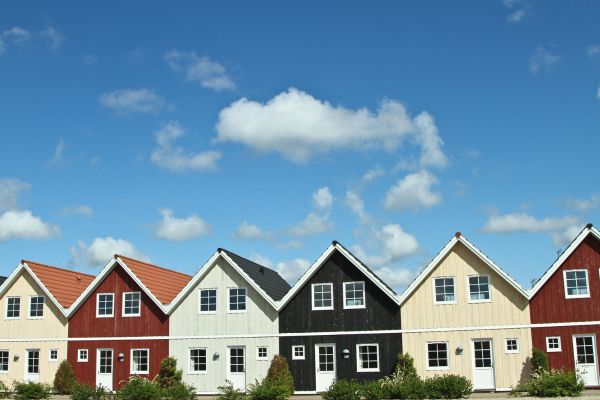
- Details
- By Native News Online Staff
Among them was the Tunica-Biloxi Tribe of east central Louisiana, awarded $6.4 million to address their housing shortage and instability caused by poor economic conditions and natural disasters, according to a press release from the tribe.
"These funds will allow us to provide an affordable and stable housing environment for nineteen families,” said Tunica-Biloxi Chairman Marshall Pierite in a statement. “Having a roof over your head and walls around you protects us from the elements of nature and creates the solid foundation under your feet that keeps a family together.”
The newly constructed units will consist of multiple floor plans for three-bedroom homes and will have mixed uses, including elderly housing, emergency housing, and housing for dislocated tribal citizens and low-income tribal citizens.
Among the awards is $7.5 million for the Grand Traverse Band of Ottawa and Chippewa Indians to build 36 housing units; $7.5 million to Taos Pueblo to construct 24 housing units; and $5 million to the Yavapai-Apache Nation for 16 housing units.
The Indian Housing Block Grant Competitive (IHBG) funds play a crucial role in bolstering vibrant American Indian and Alaska Native communities, where housing insecurity is a common problem, according to HUD.
The federal Department of Housing and Urban Development reported in 2017 that there was an immediate need for 68,000 new and rehabilitated housing units to be built in Indian Country, according to Tribal Business News.
For a full list of grant recipients, click here.
More Stories Like This
Native News Weekly (August 25, 2024): D.C. BriefsNavajo Nation Mourns the Passing of Former Vice President Rex Lee Jim
Deb Haaland Earns Endorsement From Communications Workers of America Local 7076
University Soccer Standout Leads by Example
Two Native Americans Named to Democratic Congressional Campaign Committee's“Red to Blue” Program
Help us defend tribal sovereignty.
At Native News Online, our mission is rooted in telling the stories that strengthen sovereignty and uplift Indigenous voices — not just at year’s end, but every single day.
Because of your generosity last year, we were able to keep our reporters on the ground in tribal communities, at national gatherings and in the halls of Congress — covering the issues that matter most to Indian Country: sovereignty, culture, education, health and economic opportunity.
That support sustained us through a tough year in 2025. Now, as we look to the year ahead, we need your help right now to ensure warrior journalism remains strong — reporting that defends tribal sovereignty, amplifies Native truth, and holds power accountable.
 The stakes couldn't be higher. Your support keeps Native voices heard, Native stories told and Native sovereignty defended.
The stakes couldn't be higher. Your support keeps Native voices heard, Native stories told and Native sovereignty defended.
Stand with Warrior Journalism today.
Levi Rickert (Potawatomi), Editor & Publisher


